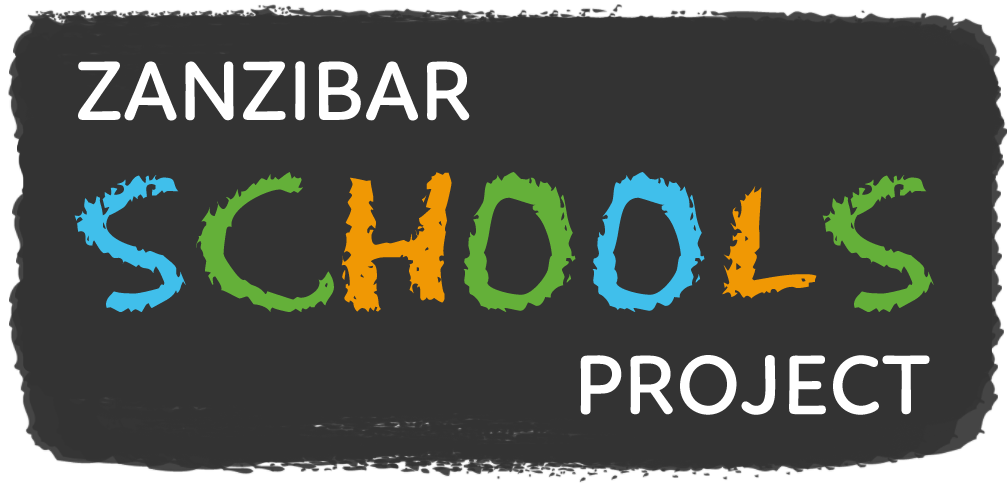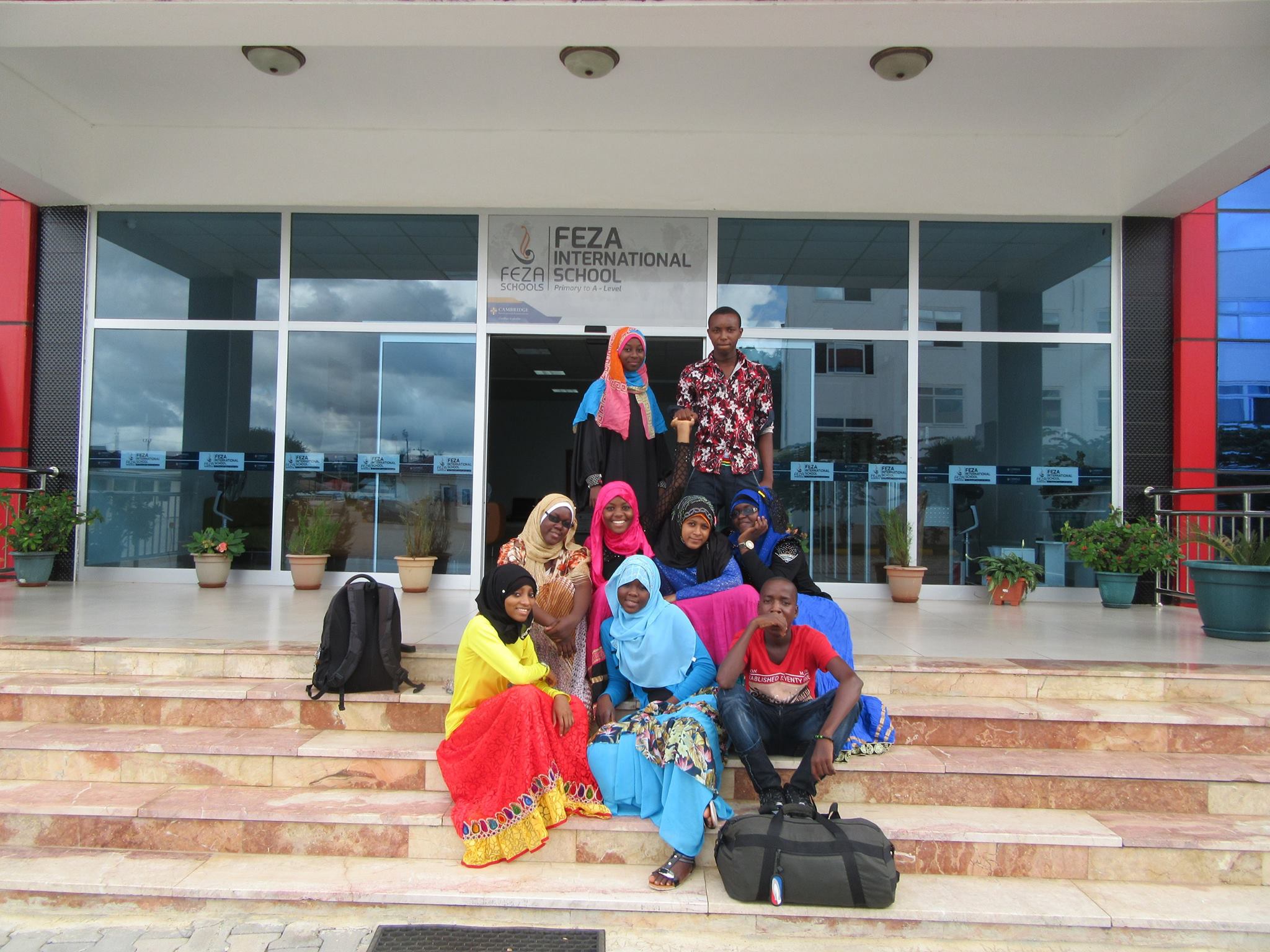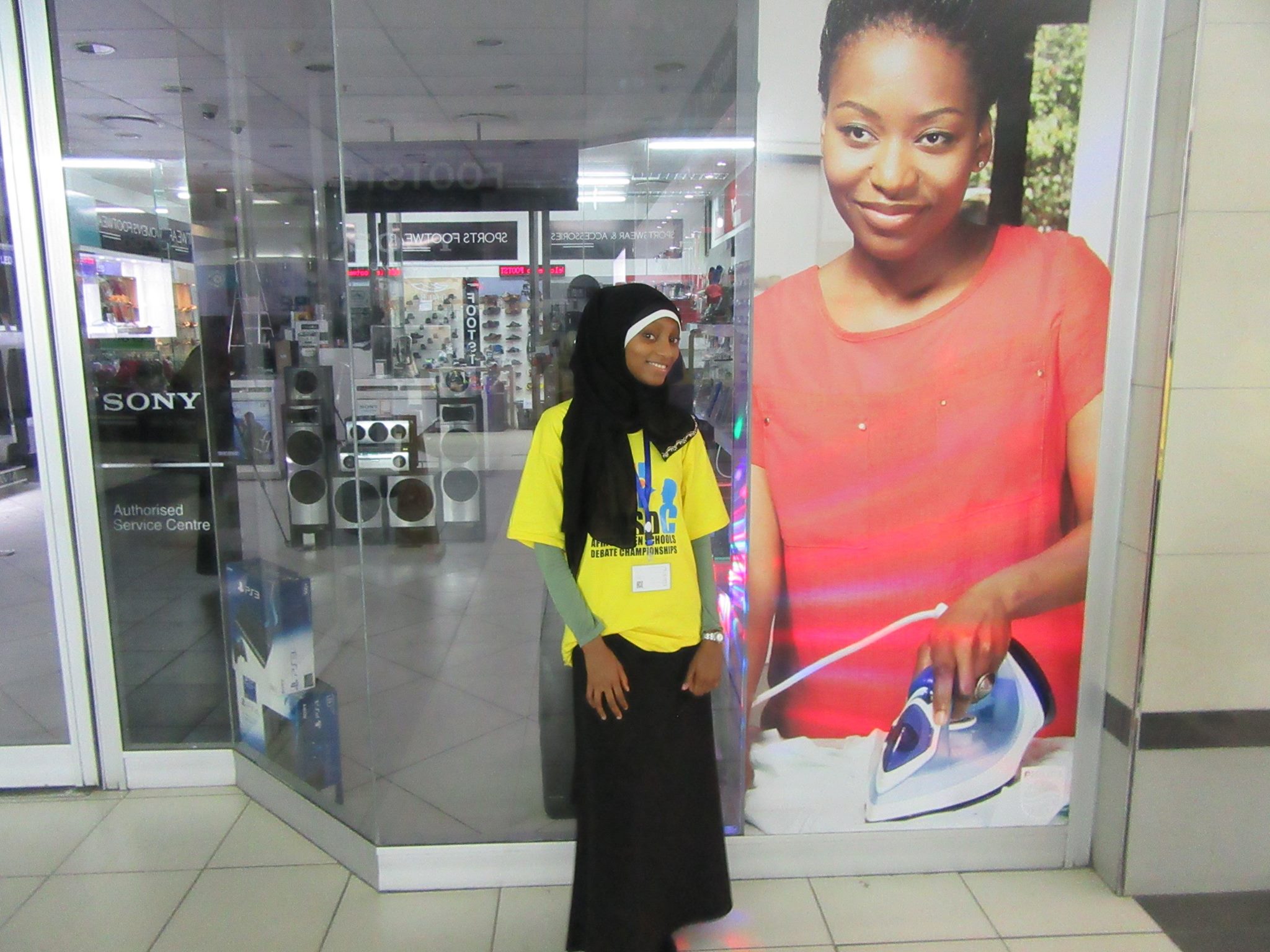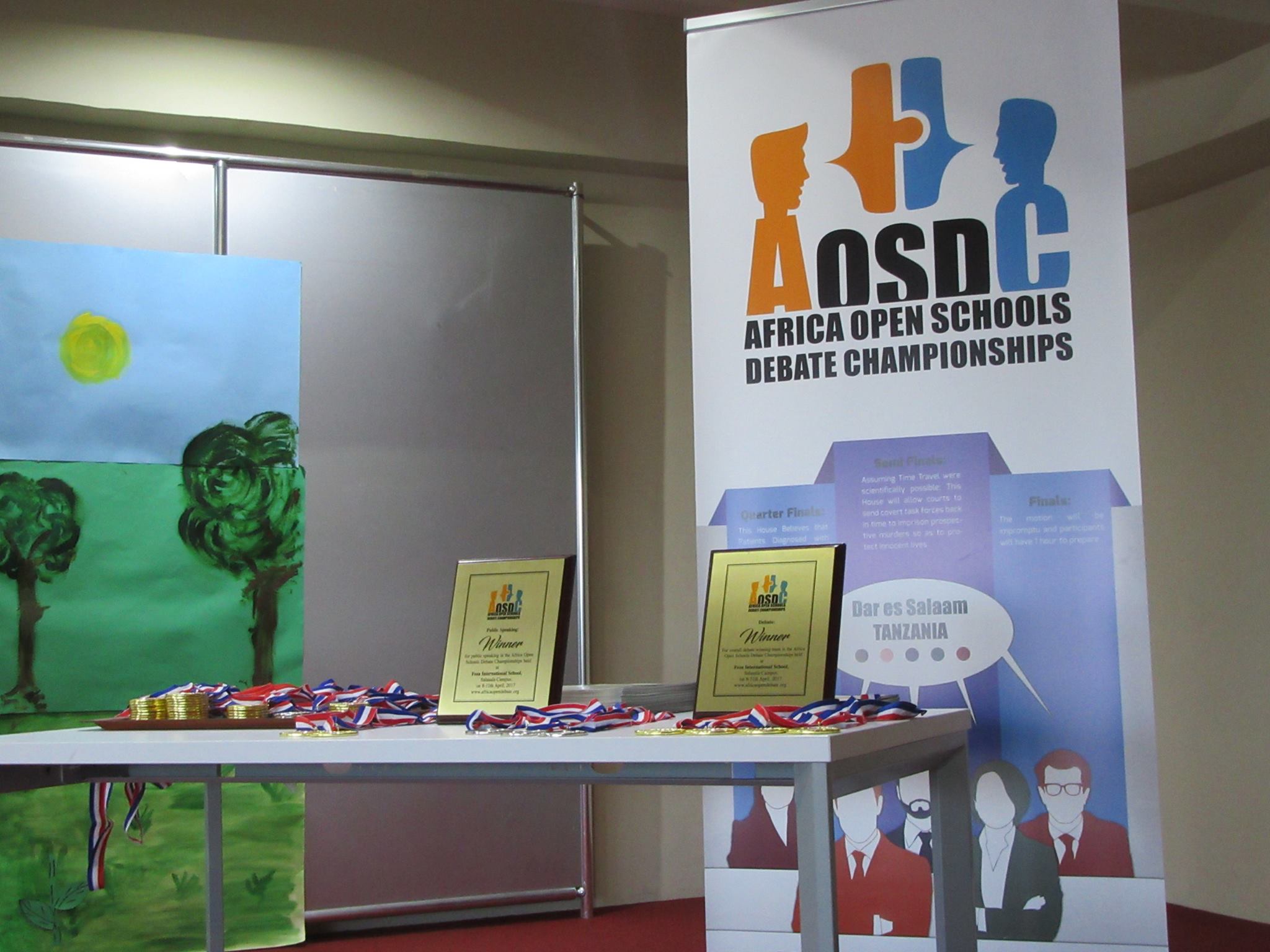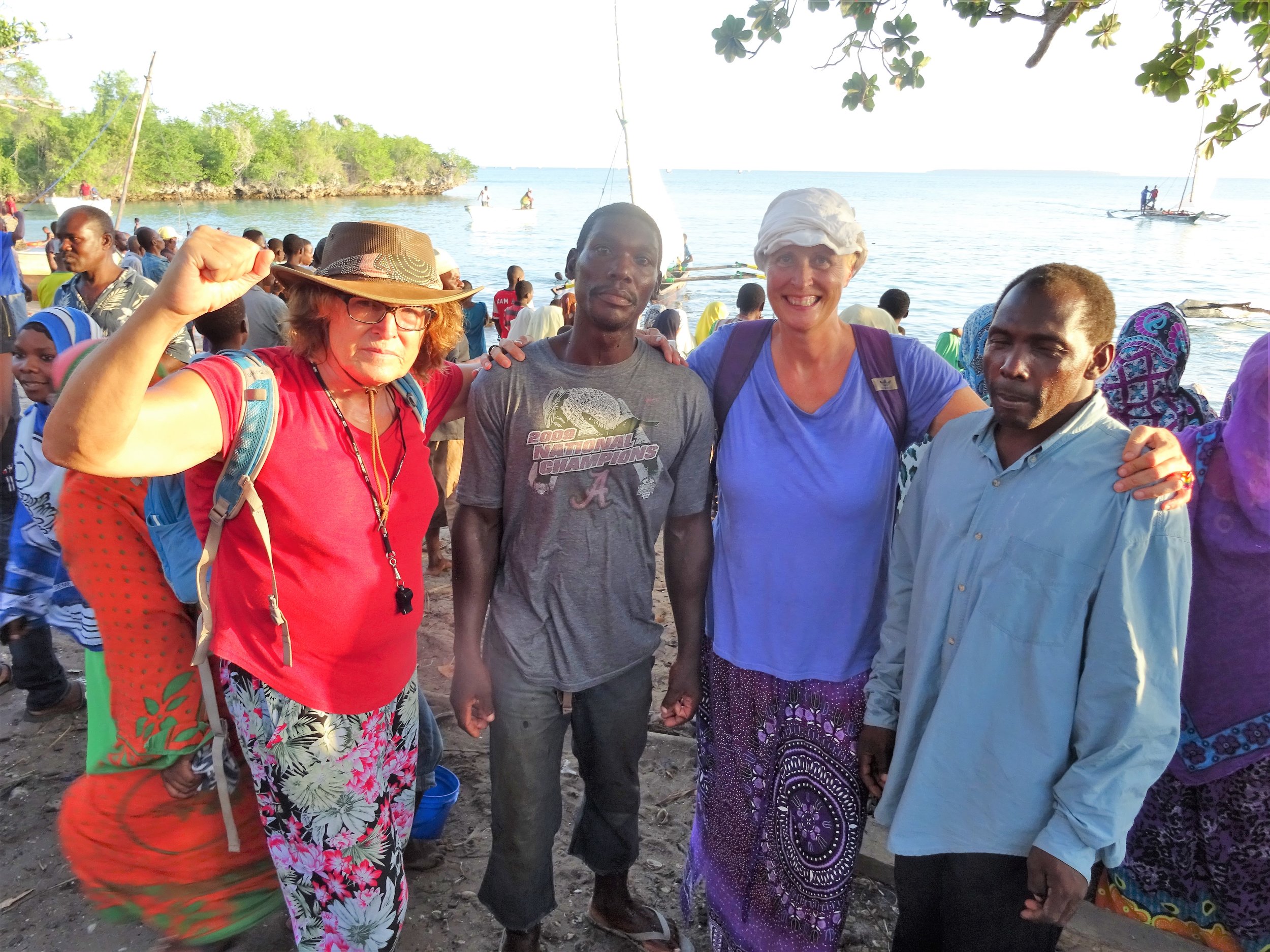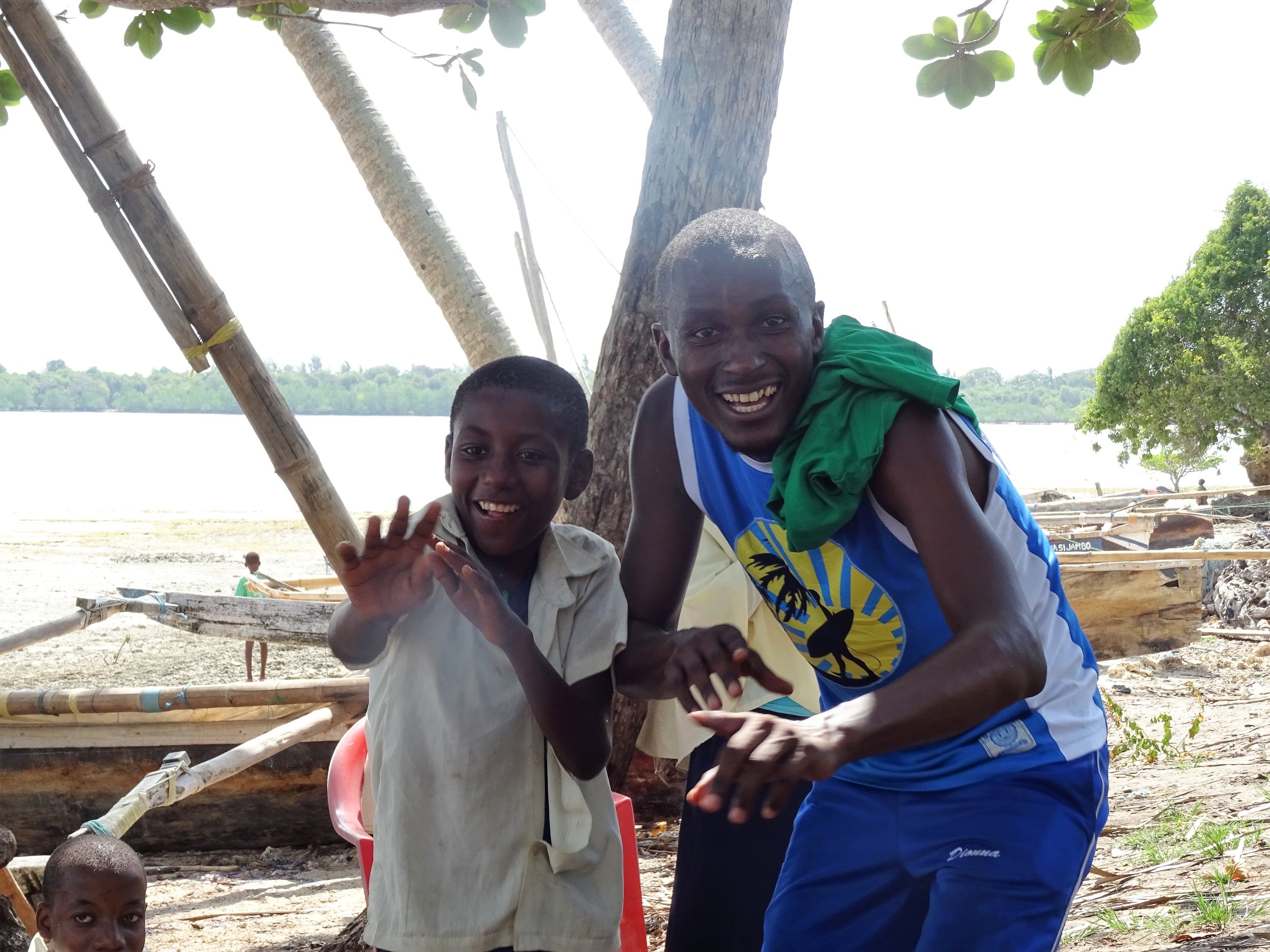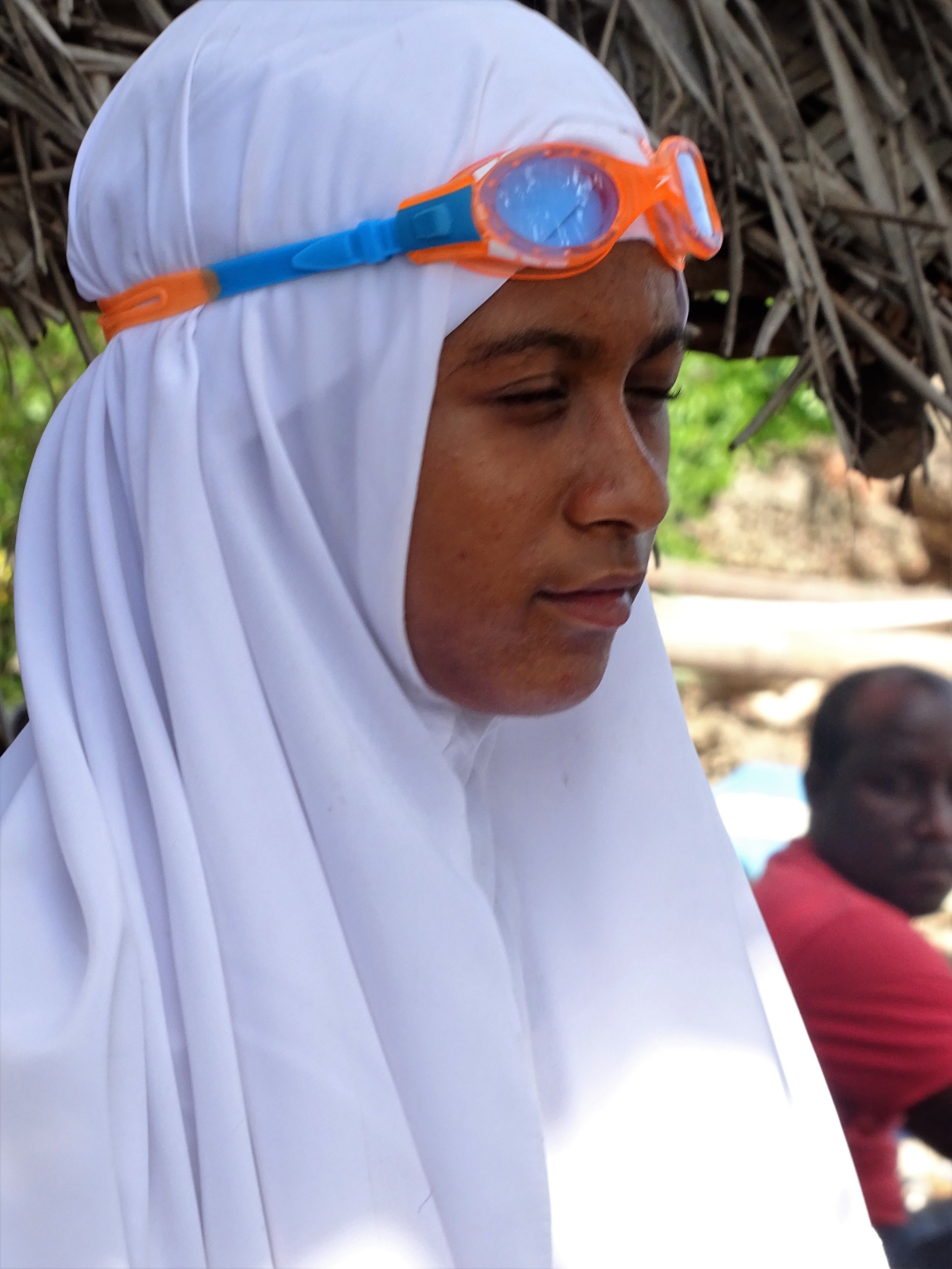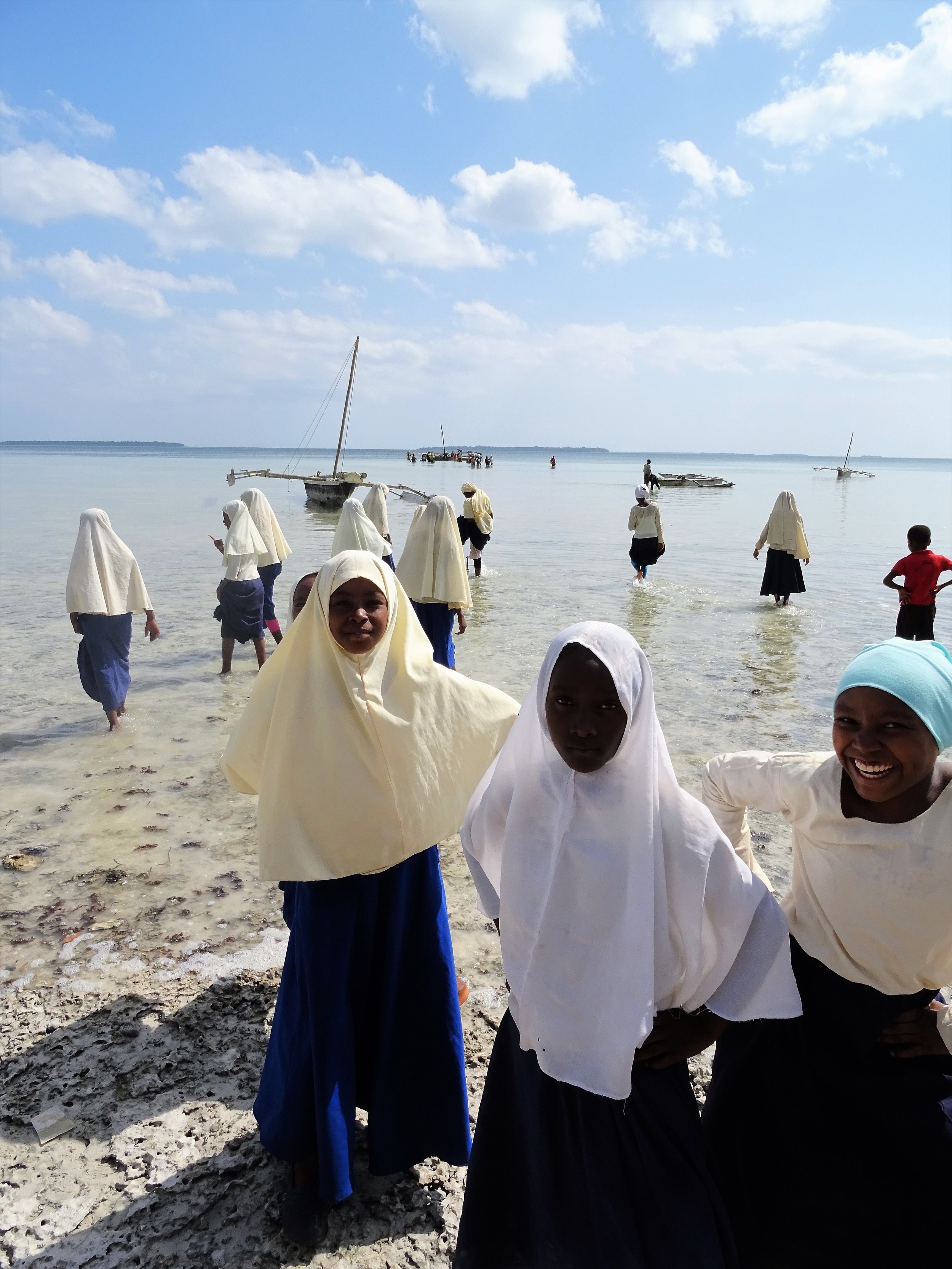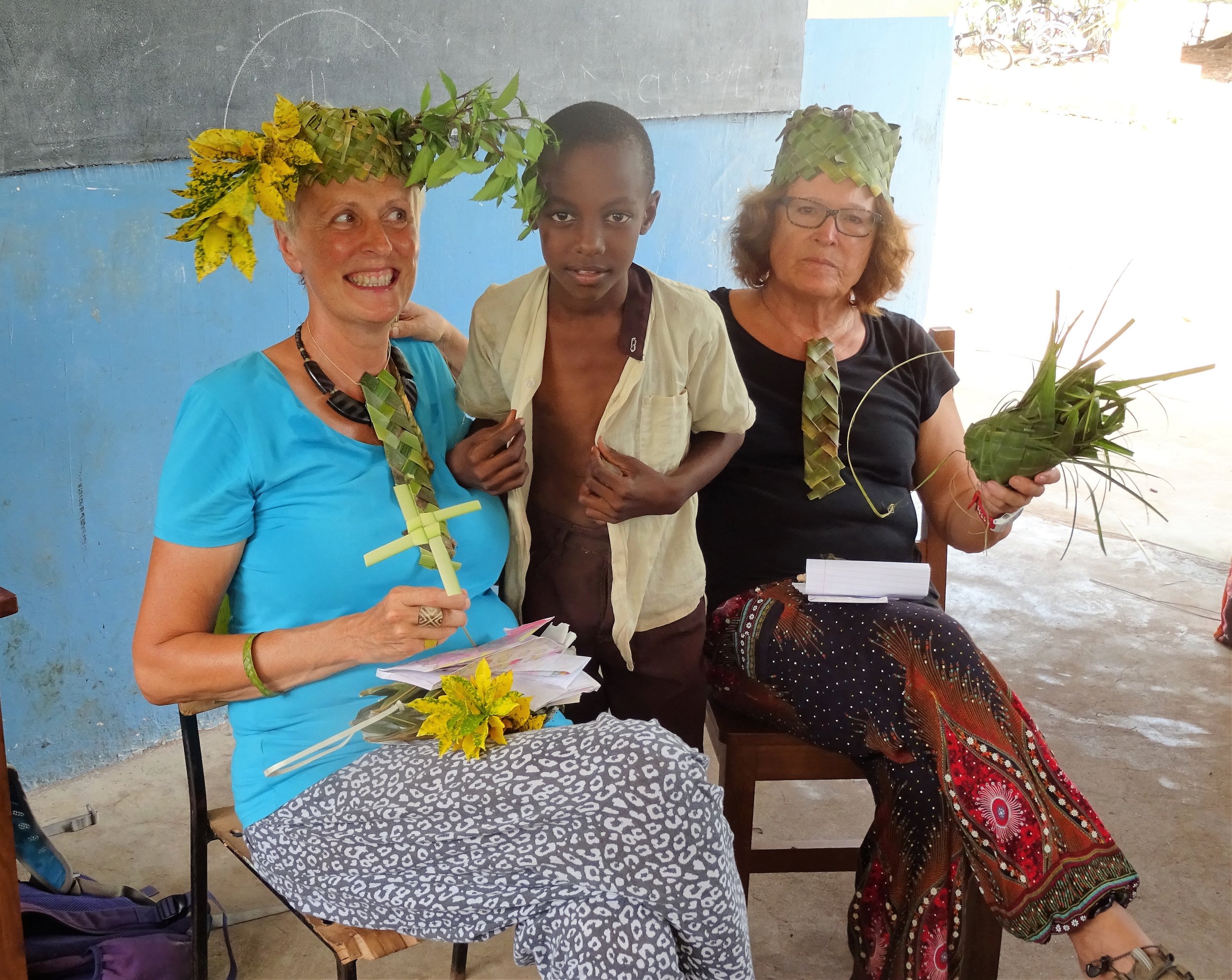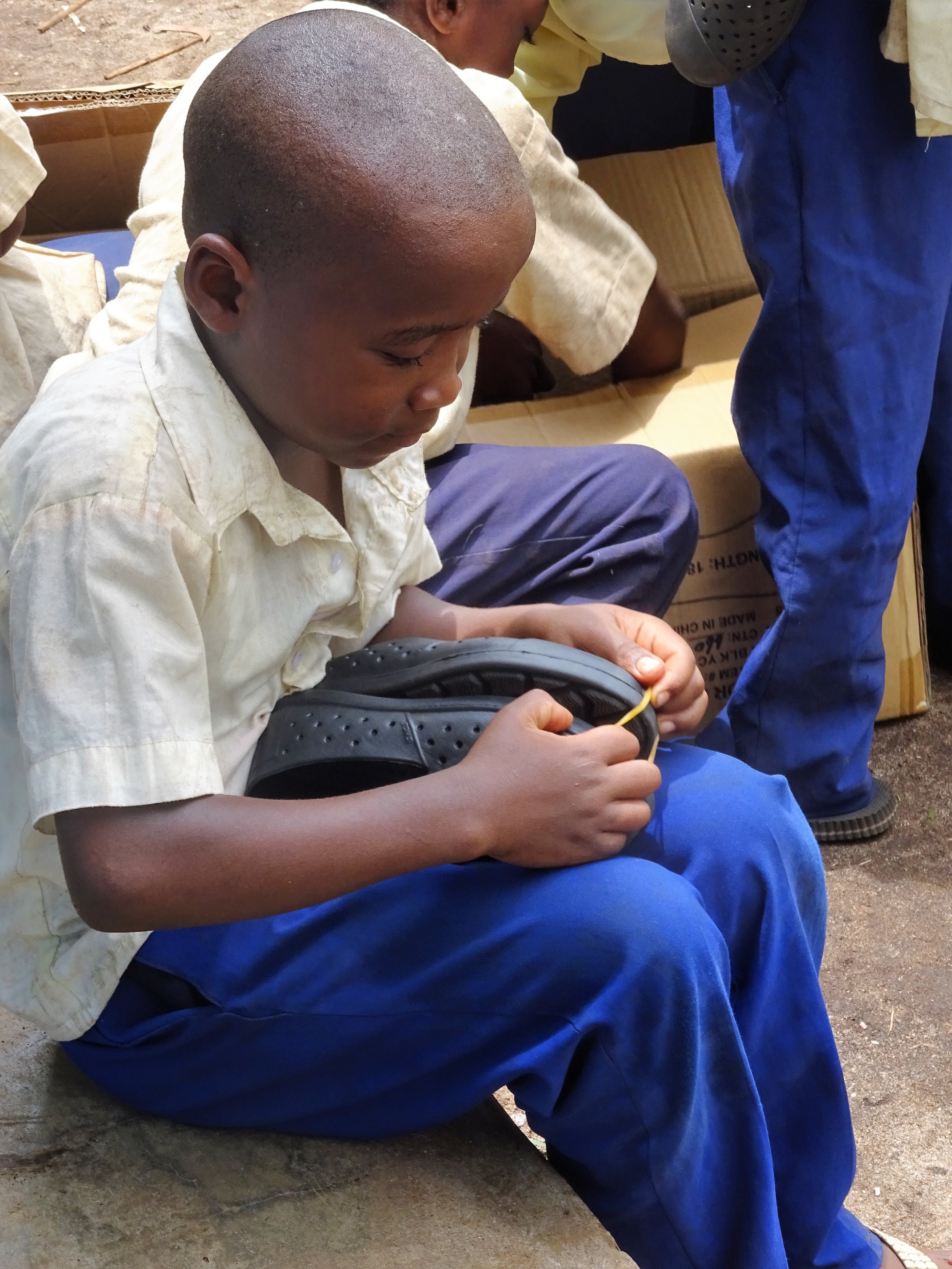So the two debate teams have returned to Zanzibar! Five of the advanced students from Safari English Club and a team from Zanzibar Learning 4 Life Foundation along with teachers Chloe, Sadiq and Mohammed went to Dar es Salaam for the Africa Open Schools Debate Championship. It’s hard to describe how excited they were – they’ve never left the island of Zanzibar and were really looking forward to seeing a big city on the mainland. As well as being excited, they were nervous too. They were representing their village and the island. Everyone had practiced hard, but they knew that they’d have a tough job as the competition would be native English speakers or Tanzanians who have a much better English education than they do.
Everyone loved the ferry journey and approaching the city skyline of Dar was a thrill. The organisers met the team at the port and took them to the Feza Boys Boarding school. The event was scheduled for the school holiday so the school dorms were available for the debators. The first day consisted of training for the students and the teachers. It turned out that apart from the Zanzibar students, the other competitors were all from private schools. There was a massive difference not only in English-speaking ability, but also in their training to be analytical, form arguments, knowledge of current affairs and ability to use smart phones/the Internet to find the information they needed to win a debate. On the first day, the Zanzibari students become worried about their ability to participate. However, Mohammed, Sadiq and Chloe had a big pep talk with the students and explained that they were in Dar to enjoy taking part and enjoy the experience. Winning isn’t everything, especially when you’re not playing on a level field and you’re the newest to speaking English.
The conversation paid off and the students relaxed and had fun. The format is based on the UK parliament system with a PM, Deputy PM and whip. Each team talks for a total of 28 minutes and has a specific role they have to fulfil in order to score high points. There were also two impromptu debates where the kids only have 30 minutes to prepare a debate on a surprise subject. As adjudicators the teachers were not able to help their teams at all with this, even though they tried to (a tiny bit...) They were hard! One was "This house believes Donald Trump is a one term President" – quite a challenge for the kids from Zanzibar who don't even know who Donald Trump is!
It’s fair to say that it was mind-blowing for them to see a school with so many facilities. Haroun said that he couldn’t imagine failing an exam if you have all that support. Everything was different. In Zanzibar there are heavy wooden desks, in Dar there were chairs, individual tables, windows and lots of glass!
When they completed their registration forms they had to list dietary requirements. They mostly listed chicken and rice. They couldn’t have imagined that they would have three big meals a day. They’ve never eaten like that before! The chairs, classrooms, glass buildings... Everything was such a new thing for them. Although Safari English Club lost every debate and were last overall we’re so proud that they kept at it and didn't let it affect them. And their behaviour was impeccable! While other teams cried and complained when they lost, our students remained positive and kept taking the opportunity to learn all that they could. They really are very special young people. One evening they went to the cinema and the shopping mall. It was amazing! They loved taking a lift to the 10th floor and going up and down on an escalator! Everyone was so happy. And on the last day they went to the zoo and met some big African animals.
The results of this massive adventure? They all LOVED the Dar experience and we think the students got a lot from it. It’s given them even more drive and they’re eager to try again another time. The want to have regular debates at Safari English Club and see it as a good way to improve their English and thinking skills. And they made friends with some lovely kids from around Tanzania. Our teachers are now qualified debate adjudicators and know what you have to do to win! The teachers had their own training and had to judge the debates. We’re happy to report that Chloe won the prize for best new adjudicator!
But better than us telling you what the students got from it, please read the report below from Haroun (aged 17) who is from the village of Unguja Ukuu and has been at Safari English Club for 14 months now. The interview is with teacher Chloe and is unedited.
How did it feel to spend so much time at Feza International School? It felt great because I met with different friends and got experience to talk in front of people. I got a chance to improve my English as there they talk English at all times. The conditions are good there, and the teachers are good. There I would learn so much more. In a school like that I would get a real chance to learn. My efforts would be turned into good results for sure. There are different kinds of playgrounds… Football pitch, netball and basketball, swimming pool. I would also get time to play. That's what I want.
The food I also liked because it was delicious. It's important to eat 3 meals a day. If people want to really learn they need breakfast, lunch and dinner. If people want to learn the mind can be constant and concentrated if you have eaten.
How did it feel to lose each round of the debating? I felt good. The 1st time we lost it was like training. There were many things I didn't know. When I fell down I learnt many things – that is good. Each round we lost, I got more and my confidence increased. I knew better what I was saying and I could follow the debate rules and got used to talking in front of people.
What were the best things about going to Dar? The attitude of the people from there. Their respect is very good. I made friends from Arusha – we went into their dorm room to discuss about debating. That was good. I liked the debating system they used.
I liked the bedrooms. I slept in a very good condition. I slept with a pillow and could choose to sleep on the bottom or top bunk bed. I liked our teachers Sadiq, Chloe and Mohammed very much. When we fell down they made us feel good. When we failed they told us not to worry and to enjoy and learn everything. That was good. Sometimes when I failed I worried about what my teachers would think, but when I met them they made me feel good again.
I loved the cinema – just to arrive in Milimani city was amazing and the cinema was very exciting. We watched a film called Life. It was about how people can live, how they create things and can force problems and then how to overcome the problems. I loved Bahari zoo because I saw many animals I have never seen before… Lions, zebras, giraffes, snakes, monkeys.
Anything else you'd like to say? I want to say thank you to everyone who helped us go to Dar. It was my first time in Dar and when I arrived there I got delicious food and I have never eaten like that. I lived there for 5 days and I didn't expect in my heart I would live like that. And I can say I learnt more than more from there. You helped me to learn so much from there and now I have the experience which means I can speak in front of many people and it has helped me to think. Sometimes we only had 30 minutes to plan a topic which means I had to change the way my mind works. It was very good.
